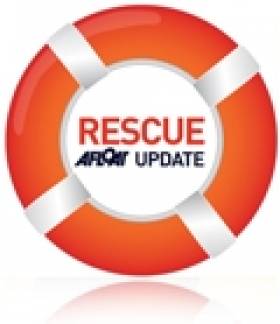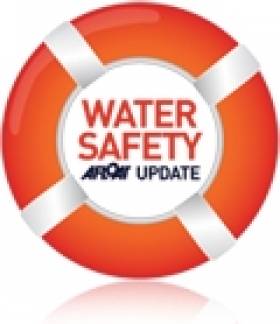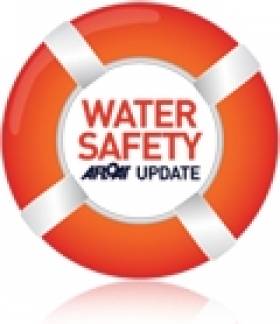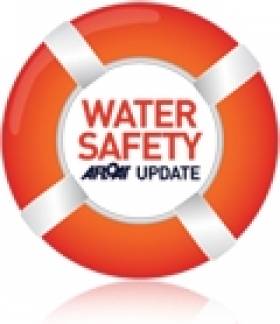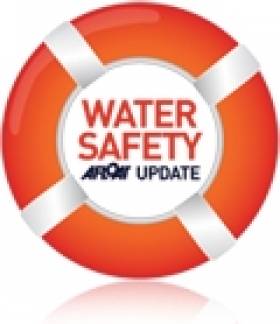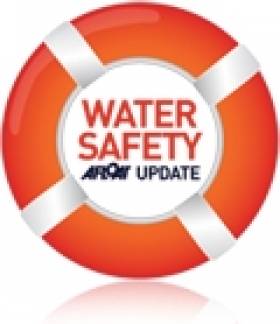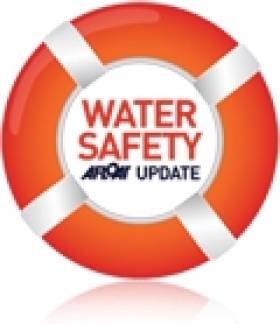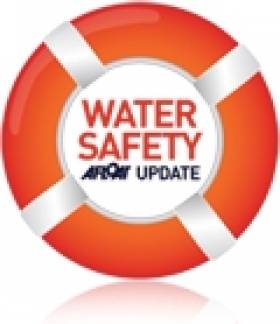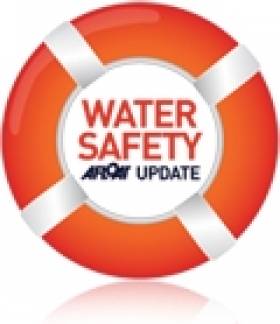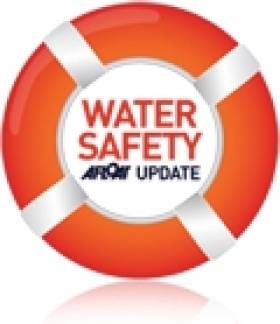Displaying items by tag: water safety
Scottish Local Authorities Have Inconsistent 'Ad Hoc' Approach to Water Safety – RoSPA
#watersafety – In Scotland, the Royal Society for the Prevention of Accidents (RoSPA) has found Scottish local authorities have an inconsistent "ad hoc" approach to water safety despite a high rate of drownings.
A ground-breaking study by the UK's leading accident prevention charity, revealed today, found a "mixed picture" in terms of how Scotland's 32 local authorities address the issue.
There were 108 drownings in Scotland in 2011 – a quarter of the 407 deaths for the UK as a whole.
The report, entitled Local authority approaches to managing water safety in Scotland, is the first time that a UK study has considered to what extent local authorities are organised and focused upon addressing the burden of drowning and water-related accidents.
Findings reveal that less than half had a specific water safety policy in place, while just over a half did not have a specific person or group taking control of the issue.
Only a quarter of authorities said they had run a water safety information campaign in the past three years, although 64 per cent said they had provided information to key groups. While nearly 69 per cent of local authorities did not include water safety advice on their websites.
RoSPA is calling on Scottish local authorities to work together to share ideas, resources and good practice in order to move away from the current "ad hoc" approach to water safety and develop a uniform policy across the country.
Carlene McAvoy, community safety development officer for RoSPA Scotland, said: "Overall, the survey found a mixed picture, with much disparity and inconsistency in approaches. Several authorities were addressing water safety, but there was little in the way of uniformity or issues being addressed strategically.
"Worryingly, more than half said they did not have a specific person or group who took control of the issue. This study highlights that there needs to be a better understanding of water safety, greater sharing of resources, as well as much more information on good practice."
The drowning rate in Scotland among males has increased by between two and three times in relation to England, recent research funded with a RoSPA/BNFL Scholarship has found. Scottish and Welsh teenagers and young men aged 15-30 were identified as high risk groups.
The findings of the Scotland report will be presented at the RoSPA National Water Safety Seminar in October. The local authority approaches to managing water safety in Scotland report is available at www.rospa.com/leisuresafety/info/watersafety/approaches-to-managing-water-safety.pdf.
Irish Water Safety Slams Inflatable Toys As 'Floating Killers'
#WaterSafety - Irish Water Safety has described cheap inflatable boats and rafts as "floating killers", as The Irish Times reports.
Water safety chiefs have urged the public to avoid using such inflatables on open water following last month's rescue of three children who drifted more than 30km out to sea from Cloughey Bay in Co Down.
Previously, two children were rescued at Ballybunion in Co Kerry after drifting out to sea on an inflatable toy.
Other incidents include a man carried out by the current on a rubber ring from White Rocks beach at Portrush, Co Antrim and three men who set out from Tramore, Co Waterford on a makeshift raft with no lifejackets or other safety gear.
The news comes just days after Irish Water Safety announced its lifeguards had rescued some 559 swimmers on Irish beaches during the recent heatwave.
The Irish Times has more on the story HERE.
Marine Notice: Care And Use Of EPIRBs And Lifejackets
#MarineNotice - The latest Marine Notices from the Department of Transport, Tourism and Sport (DTTAS) remind all mariners of the importance of safety at sea - both in seeking help and staying safe till help arrives.
Marine Notice No 38 of 2013 details guidelines for the care and maintenance of Emergency Position Indicating Radio Beacons or EPIRBs, which if installed correctly will automatically operate if a vessel capsizes, notifying the nearest emergency services of your location.
Meanwhile, Marine Notice No 39 of 2013 informs all owners, charterers, masters, skippers and crew of fishing and commercial vessels that correctly selected and worn lifejackets or personal flotation devices (PFDs) save lives.
Rugby Star's Cousin Knocked Out In Diving Accident
#WaterSafety - Herald.ie reports that a young cousin of rugby international Jonny Sexton was "shocked but recovering well" after she was knocked out in a diving accident last week.
Fourteen-year-old Kelly Sexton was diving with friends off a 50-foot ledge at Diamond Rocks in Kilkee, Co Clare to celebrate her birthday when she apparently struck the water at an angle that rendered her unconscious.
Thankfully her friends came to her aid immediately and cared for her until she was airlifted to University Hospital Limerick by the Shannon coastguard rescue helicopter.
The incident came on the last weekend of the nationwide heatwave that saw a shocking 10 drownings around the island of Ireland.
Rosslare RNLI Praises Emergency Caller Despite False Alarm
#WaterSafety - Rosslare RNLI has given credit to the quick-thinking member of the public who raised the alarm over what they believed to be a swimmer in difficulty - even though the call-out turned out to be a false alarm.
Lifeboats from Rosslare Harbour and Wexford RNLI were involved in the sea search on Friday evening (19 July) after a swimmer was reported to be in difficulty off Curracloe beach in Co Wexford.
The Irish Coast Guard helicopter Rescue 117 and two local fishing vessels were also involved in the search, which was stood down after an hour and 45 minutes upon coastguard request as no one was reported missing.
Speaking after the call-out, Rosslare RNLI deputy launching authority Dave Maloney said: "The member of the public who raised the alarm this evening deserves credit for doing so."
He added: "We would always encourage the public to alert the emergency services if they see anyone they believe to be in trouble or any signs of danger."
The message is particularly important in a fortnight that has seen a shocking 10 drownings around the island of Ireland - resulting in a big rise in emergency call-outs over the 2012 mid-summer period.
Elsewhere on the same day, the Ballycotton RNLI lifeboat was requested to help search the water off Ballinamona Strand in Ballycotton Bay, Co Cork, for a missing five-year-old girl.
The little girl was playing on the strand when her family lost sight of her. Emergency services were alerted and a search of the area commenced, but thankfully a short while later the little girl was located safe and well.
In other water safety news, the Irish Coast Guard has issued a public appeal for help locating a training mannequin that was lost in Galway Bay during an exercise off Blackhead in North Clare last week.
The Connacht Tribune reports that five coastguard mannequins were placed in the water to acts as people who jumped overboard from a ship fire - but only four were recovered afterwards.
Big Rise in Coastal and Inland Rescue Calls Over 2012
#WaterSafety - Rescue call-outs for people swimming in inland waterways have risen more than 100% over the past two months compared to the same period last year, as The Irish Times reports.
Coastguard call-outs overall have risen 50 per cent in the same timeframe, with calls to help coastal swimmers up by more than half on 2012 figures.
With the death toll from drownings during the continuing heatwave now standing at 10 after two weeks, the Irish Coast Guard has also highlighted a growing number of "close shaves" that could have doubled this already shocking figure.
According to the Irish Examiner, coastguard units throughout the country dealt with 72 incidents this past weekend alone.
These include two children rescued at Ballybunion in Co Kerry after drifting out to sea on an inflatable toy.
Four More Drownings Bring Renewed Water Safety Appeal
#WaterSafety - Four more people have drowned in separate incidents around Ireland as the heatwave continues.
As RTÉ News reports, a 24-year-old man died while swimming in the sea near Ardara in Co Donegal yesterday afternoon (20 July).
Later, the body of a second victim was recovered from the Shrule River in Newtownstewart, Co Tyrone after getting into difficulty.
A third man in his 60s is was drowned after failing to return from a swim in a quarry near Carrick-on-Suir. His body was recovered earlier today.
The tragedies follow news of a 19-year-old who drowned while swimming with friends in Lough Leane in Killarney on Friday evening (19 July).
And a woman in her 30s was lucky to be rescued after getting into difficulty swimming in the River Nore near Kilkenny. She is currently in a serious but stable condition in hospital.
Irish Water Safety have renewed their appeal for the public to take extra care when taking to the water during this extraordinary hot weather that had already claimed seven lives as of Thursday last.
Derry Drowning Brings Heatwave Water Death Toll To Seven
#WaterSafety - Water safety chiefs have yet again underscored the dangers of swimming in unsupervised areas after a teenager drowned in Co Derry yesterday afternoon.
The Irish Times reports that the 15-year-old boy was airlifted to hospital by police helicopter after getting into difficulty when he fell into the River Roe.
The as yet unnamed teen is the seventh drowning victim on the island of Ireland during the current heatwave.
Last week alone saw five drownings of young people, prompting Irish Water Safety CEO John Leech to make a public appeal for awareness of the dangers of swimming in areas without lifeguards, especially in open water.
“One of the reasons we’re losing all these youngish people is because a whole generation haven’t learned to swim in open water,” said Leech, who added that 32 per cent of victims have consumed alcohol.
The Irish Times has more on the story HERE.
Fifth Drowning This Week Puts Water Safety In Spotlight
#WaterSafety - Water safety chiefs have urged the public to take proper care after the fifth drowning of this week's heatwave.
As The Irish Times reports, the body of a 17-year-old boy was recovered yesterday from a canal in Ardnacrusha, Co Clare where he had been swimming with friends on what was the hottest day so far this week.
It follows the tragic deaths of four other young people ranging from 12 to 21 years of age in various incidents around the country in both coastal and inland waters.
The sad news prompted the Irish Coast Guard to urge the public to "keep water safety in mind" when enjoying outdoor activities at any time this summer.
Irish Coast Guard (IRCG) manager Declan Geoghegan said: “With the warm weather forecast, our thoughts naturally go to enjoying the outdoors and outdoor activities. Whether you enjoy swimming, canoeing, surfing, angling, sail boarding, always remember to wear a personal flotation device.”
PFDs include lifejackets and buoyancy aids, and the IRCG reiterated that it is vital to wear a lifejacket or buoyancy aid if your activity takes you near the water, whether at the sea or on lakes and rivers.
Geoghegan continued: “Each year, the Irish Coast Guard is involved in many search and rescue incidents involving people in our seas, lakes and inland waterways. Wearing a PFD isn’t just common sense, it's basic advice that could save your life.”
Advice from the coastguard to stay safe on the water this summer is to always remember and take heed of the following:
- Never go out alone
- Be able to swim - get the proper training to stay safe
- Never go out on the water having consumed alcohol
- Familiarise yourself with the local areal be aware of your own capabilities and that of your craft
- Check your equipment before you set off and tell someone where you are going and what time you will be back
- Never go out when darkness is approaching
Geoghegan urged anyone planning to join in water-based activities to check out the Safety On The Water website which includes guidelines and advice on most watersport and related activities.
Roscommon Drowning Marks Fourth Tragedy In Two Days
#WaterSafety - RTÉ News reports that a teenager has drowned in Co Roscommon in the fourth such tragic incident during this week's heatwave.
The teen was one of three swimmers who went missing in Annaghmore Lough near Strokestown yesterday evening.
Two of the swimmers managed to reach the shore, but the body of this third was recovered before midnight by a search party led by the Irish Coast Guard's Shannon rescue helicopter and involving local angling boats.
The sad news comes just a day after a 12-year-old boy drowned while swimming in the sea off Youghal beach in Co Cork.
That followed the death of a 21-year-old woman named Lisa Knight who was swimming with friends in the River Feale in Co Limerick late on Tuesday night.
And on Wednesday afternoon a 17-year-old boy drowned after getting into difficulty swimming in a lake in Celbridge, Co Kildare, according to The Irish Times.
Irish Water Safety chief John Leech has appealed to the public on RTÉ Radio 1's Morning Ireland to be aware of the risks associated with the water, especially in unsupervised areas - and particularly for inexperienced swimmers.



























